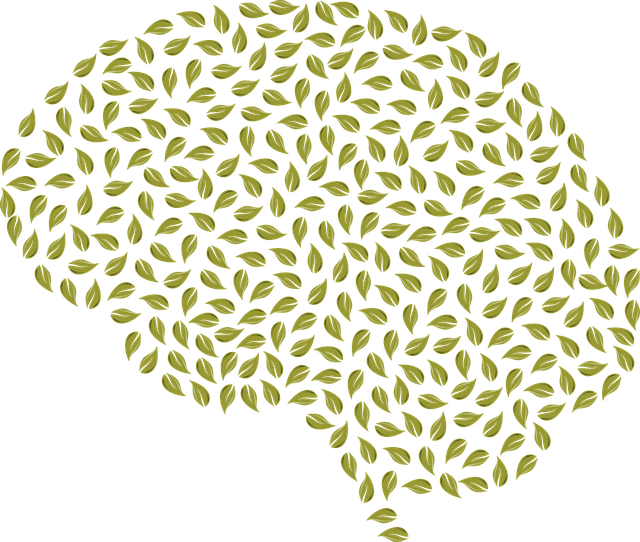The elderly population faces unique stressor-related challenges, including social isolation, financial difficulties, health decline, cognitive impairment, and major life transitions. Early intervention is key, focusing on subtle behavioral, physical, and cognitive changes. Tailored therapy, such as Problem-Solving Models and CBT, combined with stress management techniques, improves well-being by addressing specific elder concerns like loneliness or physical issues. Crisis interventions prioritize a safe space with open dialogue and emotion validation, fostering resilience. Ongoing care includes targeted therapy, coping skills training, mindfulness practices, and risk assessments to prevent future crises, ensuring elders' holistic emotional well-being.
Elderly stress is a growing concern in today’s fast-paced world, with potential consequences for overall health. This article provides a comprehensive guide to crisis intervention strategies tailored for effective support of elderly individuals experiencing stress. We explore causes and signs of elderly stress, delving into various crisis intervention models and therapy techniques for optimal management. Additionally, we discuss creating safe spaces, environment design, communication strategies, and post-intervention care and preventative measures. Discover insights on therapy for elders stress management and learn how to make a positive impact in their lives.
- Understanding Elderly Stress: Causes and Signs
- Crisis Intervention Models for Effective Support
- Therapy Techniques to Manage Elderly Stress
- Creating a Safe Space: Environment and Communication Strategies
- Post-Intervention Care and Preventative Measures for Elders
Understanding Elderly Stress: Causes and Signs

The elderly population faces unique challenges that can contribute to significant stress and mental health issues. Understanding the causes and signs of stress in this demographic is crucial for effective crisis intervention. Elderly individuals may experience stress due to various factors, including social isolation, financial difficulties, physical health decline, and cognitive impairment. These problems can be exacerbated by major life transitions such as retirement or the loss of a spouse. Recognizing the subtle cues that indicate an elderly person is struggling is essential for early intervention.
Signs of stress in the elderly might include changes in behavior, such as increased irritability, anxiety, or depression. Physical manifestations may present as frequent headaches, insomnia, appetite changes, or even a weakened immune system. Memory lapses and difficulty concentrating can also be indicators of mental strain. Caregivers and mental health professionals should be vigilant in observing these signs, especially when coupled with a lack of social support or inadequate coping mechanisms. By addressing these issues through tailored therapy for elders and stress management techniques, it is possible to enhance self-esteem improvement and overall well-being while incorporating best practices in risk management planning.
Crisis Intervention Models for Effective Support

Crisis Intervention Models play a pivotal role in providing effective support, especially for elderly individuals facing various challenges. One widely recognized approach is the Problem-Solving Model, which focuses on identifying and addressing specific issues that contribute to distress. This model empowers seniors to take an active role in managing their crises by offering structured guidance to break down complex problems into manageable steps. For instance, helping an older adult dealing with financial stress involves assessing the situation, generating solutions, trying out these strategies, and evaluating their effectiveness.
Additionally, therapeutic techniques such as Cognitive Behavioral Therapy (CBT) can be tailored to therapy for elders, focusing on anxiety relief and emotional well-being promotion. CBT aids in identifying negative thought patterns and replacing them with more adaptive ones, thereby enhancing emotional intelligence. The goal is to equip older adults with tools to navigate stress management, improve coping mechanisms, and foster resilience. By combining crisis intervention models with evidence-based therapy techniques, caregivers can offer targeted support, ensuring the holistic well-being of elderly individuals in times of crisis.
Therapy Techniques to Manage Elderly Stress

Elderly individuals often face unique challenges that can contribute to increased stress and anxiety, making effective therapy techniques for stress management crucial. For older adults, traditional talk therapy may need to be tailored to address specific concerns like loneliness, physical health issues, or cognitive decline. One powerful approach is incorporating self-awareness exercises that encourage reflection on thoughts and feelings, fostering a deeper understanding of one’s emotional responses.
Mindfulness meditation has gained significant traction as a stress reduction tool for the elderly. This practice involves focusing on the present moment without judgment, helping individuals detach from stressful thoughts. Additionally, cultivating emotional intelligence can empower seniors to recognize and regulate their emotions, leading to improved overall well-being. By combining these therapy techniques with a supportive environment, professionals can effectively guide older adults in managing stress and enhancing their quality of life.
Creating a Safe Space: Environment and Communication Strategies

In crisis intervention, creating a safe and supportive environment is paramount. For elderly individuals facing stress or mental health challenges, this involves more than just physical safety; it entails cultivating an atmosphere of trust and non-judgmental acceptance. Therapists and healthcare providers play a crucial role in establishing such spaces by employing communication strategies that foster open dialogue and encourage vulnerability. Active listening, for instance, allows elders to express their feelings and fears uninhibitedly, while validating their emotions helps convey empathy and understanding.
A culturally competent approach further enhances safety by recognizing and respecting individual backgrounds, beliefs, and preferences. Healthcare provider training in cultural competency ensures that interventions are sensitive to diverse needs, thereby fostering resilience-building opportunities within a safe environment. By addressing mental illness stigma through these efforts, elders can feel more at ease discussing their struggles openly, which is essential for effective therapy and overall well-being management.
Post-Intervention Care and Preventative Measures for Elders

After a crisis intervention, providing ongoing care and implementing preventative measures are crucial to support elders’ long-term emotional well-being. This includes offering therapy for elders tailored to address any underlying mental health concerns or stressors that contributed to the crisis. Regular sessions with mental health professionals can help them develop coping strategies, enhance social skills training, and maintain stability.
Additionally, promoting emotional well-being through various techniques such as mindfulness practices, stress management programs, and engaging in meaningful activities can mitigate future crises. Conducting regular risk assessments for mental health professionals is essential to ensure they are adequately prepared to handle the unique needs of elders and provide culturally sensitive care. This holistic approach aims to empower seniors, foster resilience, and create a supportive environment that prevents subsequent crisis situations.
Crisis intervention plays a pivotal role in mitigating and managing stress among the elderly. By understanding the causes and signs of stress, employing effective crisis models, and utilizing therapy techniques tailored to their needs, we can create supportive environments that promote healing. Implementing safe space strategies and post-intervention care ensures elders receive holistic support, fostering resilience and enhancing their overall well-being. Adopting these guidelines facilitates efficient therapy for elderly stress management, ultimately enriching their lives.








